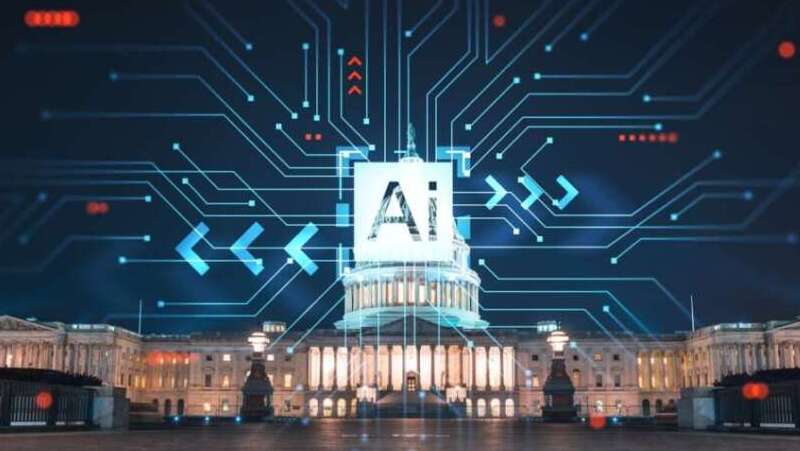
Artificial intelligence is making headway into much more than just information technology, it’s advancing biotechnology too – that’s according to the National Security Commission on Emerging Biotechnology in their latest report delivered to Congress.
Biotechnology – defined as the use of living organisms, cells, or biological systems to develop products and technologies that improve health, agriculture, and industry – is “coming faster now than even two years ago,” according to the commission in its report published April 9.
The recent acceleration largely stems from AI capabilities that can decipher the complex patterns of biological systems.
“Today, AI is beginning to decipher the patterns that govern the behavior of biological systems,” reads the report. “Thanks to AI’s tremendous modeling power, in the future we will no longer need to know (or expend the human effort and time determining) exactly how a biological system works in order to harness it. Instead, we will be able to program cells as we program computers, accurately and precisely engineering biology in order to achieve desired results.”
Commission members explained that AI is well-suited for biology, and predicted that once AI models are “fluent in DNA” the results “will be profound.”
Currently, the United States is in a race against China to develop biotechnology capabilities that would lead to the creation of bioweapons that commission members warned could be used by both state and nonstate actors.
“The future of warfare will no doubt involve biotechnology, whether or not the United States takes the lead in that field,” reads the report. “There is no sensible choice but to ensure that America maintains superior and overwhelming capabilities, while maintaining our prohibition on the development and use of bioweapons.”
There are barriers that must be overcome to attain those capabilities, according to the report. It says that biotechnology is “inextricably linked” to AI which requires high-quality biological data to operate – data that the nation doesn’t have. Some of the reasons for this include limited Federal funding and research infrastructure.
“The combination of less federal funding for biotechnology research and insufficient data to drive AI-powered discovery puts America’s innovation edge at risk, compared to countries such as China that are willing to invest heavily in biotechnology research and data,” wrote commission members.
Recommendations for Congress included investing in scaling biomanufacturing, undertaking “biomanufacturing grand challenges,” creating data-sharing platforms and AI/machine learning tools for biomanufacturing, and supporting domestic precommercial facilities to expand infrastructure.
The commission, alongside the National Academies of Sciences, Engineering, and Medicine, also recommended creating a Biotechnology Coupled with Artificial Intelligence and Transformative Automation for Laboratory Yielding Strategic Technologies (BioCATALYST) network.
That network, the commission said, would be led by the Department of Defense and the Office of the Director of National Intelligence with the aim of harnessing AI and biotechnology for national security.
“Biotechnology can ensure our warfighters continue to be the strongest fighting force on tomorrow’s battlefields, and reshore supply chains while revitalizing our manufacturing sector, creating jobs here at home,” said NSCEB Chair Sen. Todd Young, R-Ind., in a statement.
